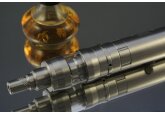
There are 384 categories of tax benefits registered in Moldova, but only 38% of them can be assessed: these are 147 types of benefits provided for 12.9 billion lei.
This is stated in the conclusion of the Accounts Chamber, which conducted an audit of the system of tax benefits in 2020-2021. The auditors identified numerous shortcomings in the management of the tax incentives system, and this is due both to the lack of a regulatory framework that regulates all stages of the tax incentives management process, and to the fragmented assessment of the impact of tax incentives on the budget. As a result, this reduces the transparency of government spending. There is also no assessment of the impact of the tax incentives provided. Currently, 384 types of tax benefits are registered in the Unified Register of Tax Benefits compiled by the Ministry of Finance in accordance with the provisions of the Tax Code and other regulations. However, only 38% of them - 145 types - are estimated at 12.9 billion lei. In 2020, the STS managed 217 categories of tax benefits, of which 141 benefits were not assessed for expenses. And although measures in the Government Action Plan for 2020-2023 are provided for the development until March 2021 of a single database of all tax and customs benefits, with an assessment of all budget expenditures on them, even a roadmap for the implementation of this measure has not yet been developed. It is reported that in 2020 the State Tax Service estimated the costs of 76 tax benefits at 2.3 billion lei, but the auditors of the Accounts Chamber believe that these data contain significant errors. Thus, for some types of benefits, the cost was incorrectly increased by 519.7 million lei, of which the most significant error was found in the calculation of benefits provided to peasant farms. The State Tax Service, instead of calculating tax exemptions, incorrectly reflected the taxable income of farms, and the amount was erroneously increased by 345.4 million lei. The audit also revealed that for other types of tax benefits, the State Tax Service underestimated the cost by 537.1 million lei. This happened both because of technical errors and as a result of incorrect communication between the State Tax Service and the Ministry of Agriculture. At the same time, according to the conclusion of the Accounts Chamber, there are no calculation methods and reasonable calculations related to the impact on the budget of some tax benefits for 1 billion lei. The audit stated that some tax incentives were provided without justification, for example, exemption from excise tax on nitrogen and oxygen produced in the country. Thus, in 2020, one economic agent received tax exemptions for about 9 million lei without any clarity about the purpose of granting this benefit and its consequences. There is also a lack of policy papers or strategies on the development of industries that benefit from fiscal incentives. As an example, the auditors of the Accounts Chamber cite the situation that developed when granting exemption from excise duty on ethyl denatured alcohol used in the manufacture of perfumery and cosmetic products. In 2018-2019 the Ministry of Agriculture periodically appealed to the Ministry of Finance, proposing to abolish this benefit as untimely and ineffective, but the Ministry of Finance ignored this proposal. Herewith, there is no clear regulation of the process of providing this benefit, the amount of which in 2020-2021 will be amounted to 900 million lei. There was also no cooperation between the Ministry of Agriculture and the State Tax Service in coordinating this benefit. The Accounts Chamber stated that government agencies did not show sufficient attention to the process of assessing tax benefits in terms of their validity and reasonableness, and made a number of recommendations to improve the situation in this area. // 05.08.2022 — InfoMarket







